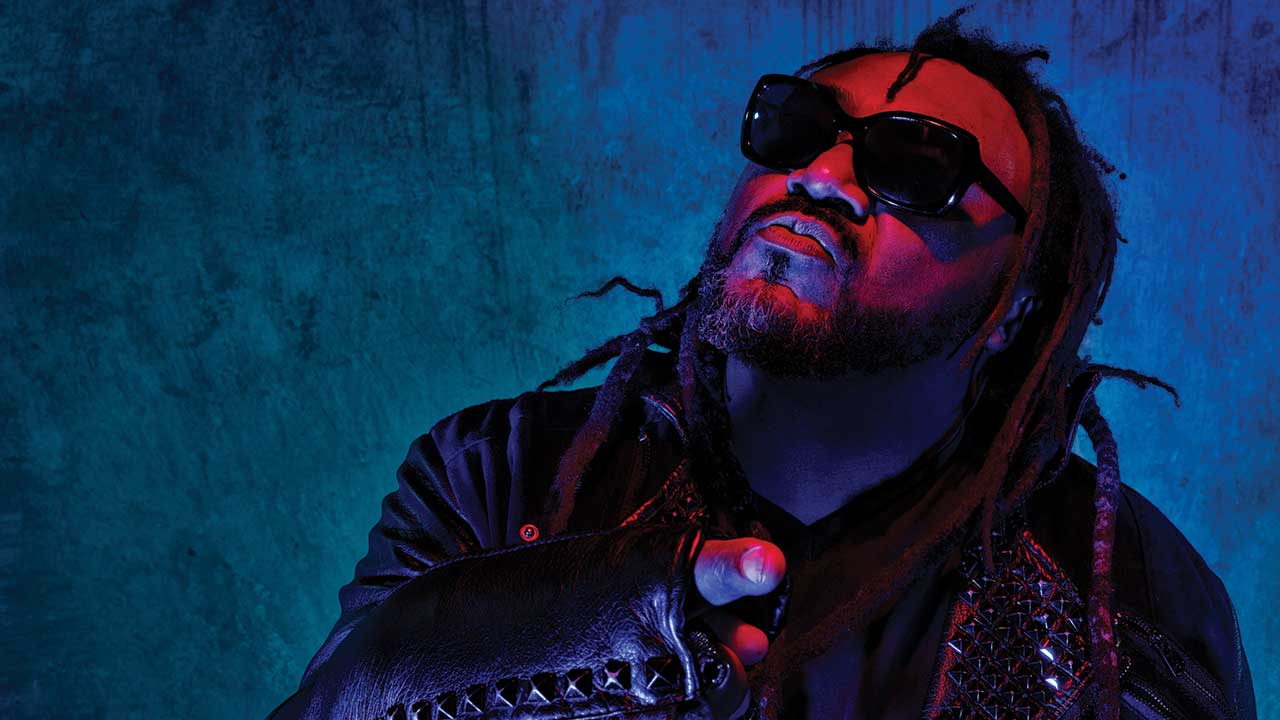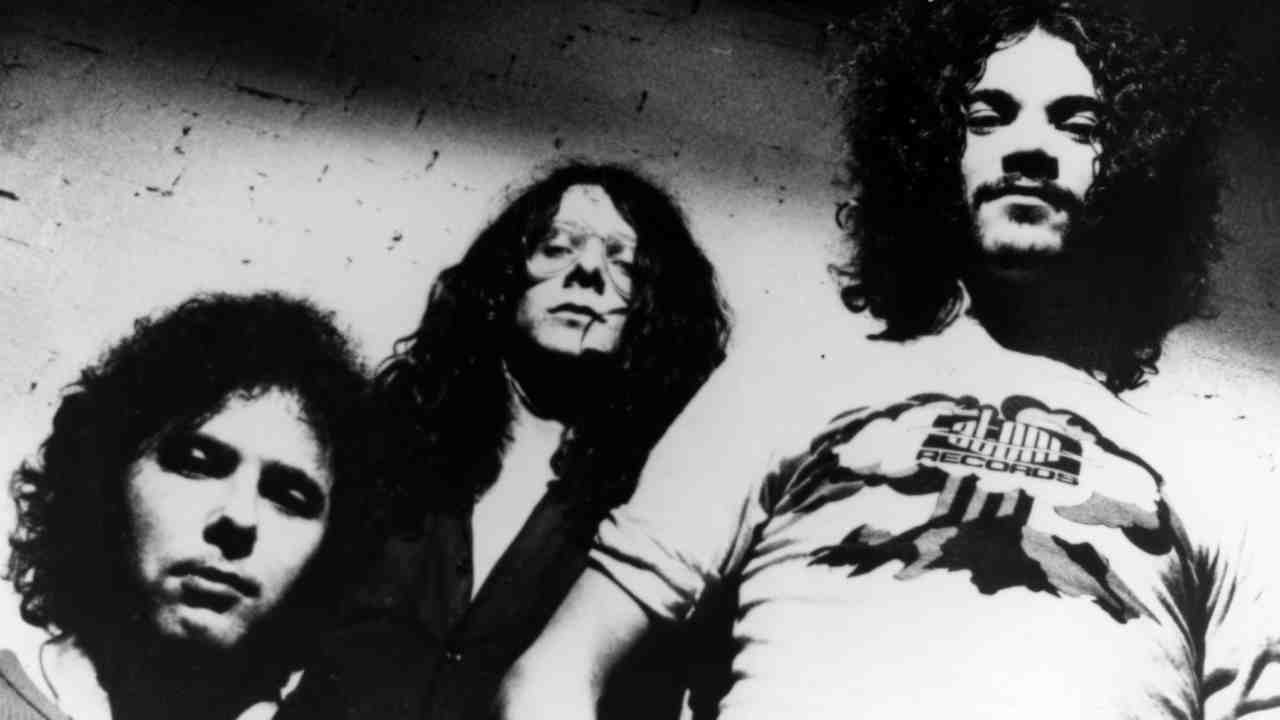Skindred's Benji Webb: "punk rock was born in Newport"
Skindred frontman Benji Webbe on loving vinyl, coping with lockdown, the Pope’s bling, and not wearing a feather boa to go to Asda

Select the newsletters you’d like to receive. Then, add your email to sign up.
You are now subscribed
Your newsletter sign-up was successful
Want to add more newsletters?

Every Friday
Louder
Louder’s weekly newsletter is jam-packed with the team’s personal highlights from the last seven days, including features, breaking news, reviews and tons of juicy exclusives from the world of alternative music.

Every Friday
Classic Rock
The Classic Rock newsletter is an essential read for the discerning rock fan. Every week we bring you the news, reviews and the very best features and interviews from our extensive archive. Written by rock fans for rock fans.

Every Friday
Metal Hammer
For the last four decades Metal Hammer has been the world’s greatest metal magazine. Created by metalheads for metalheads, ‘Hammer takes you behind the scenes, closer to the action, and nearer to the bands that you love the most.

Every Friday
Prog
The Prog newsletter brings you the very best of Prog Magazine and our website, every Friday. We'll deliver you the very latest news from the Prog universe, informative features and archive material from Prog’s impressive vault.
Last year may have scuppered Skindred’s touring plans, but it didn’t demolish their frontman Benji Webbe’s spirit.
While so many creatives and artists struggled during lockdown, not least from the financial and psychological aspects of not being able to do whatever it is they normally do, the metal/reggae-mashing innovator worked on new music – writing Skindred songs and also recording a whole album of classic rock covers – and wrote a children’s book about a cool cat named Colin.
As for Skindred, they’re re-releasing their 2007 second album Roots Rock Riot on vinyl for the very first time, which Benji hopes will introduce a new wave of fans to his music.

What prompted you decide to revisit Roots Rock Riot now?
Vinyl is more my buzz. People never had the album on vinyl, and I feel like there are so many kids now discovering vinyl for the first time. CDs are cool and all, but I remember as a kid I’d spend hours looking at vinyl albums. There’s just something special about them.
A lot of record stores closed when CDs came out, and now they’re getting a second life. Did revisiting the album bring back a lot of memories of that time?
So many. That was the first album that we toured America extensively with. We toured coast to coast in a van. That’s something that will either split the band or bring it together. Fortunately it brought us together. We played a place called Green Bay [in Wisconsin], where Buddy Holly had played before he died. We also had our gear stolen on that tour, taken out of the van.
Sign up below to get the latest from Classic Rock, plus exclusive special offers, direct to your inbox!
After that, some of us just wanted to go home, but we decided to drive to the next place, borrow some gear and go on. If we’d gone home, that might have been the end of the band. I’m a firm believer that problems have solutions.
Do you have any favourite songs on Roots Rock Riot?
There’s a song called Trouble, which was based on a situation I had in a kebab shop. I was with a friend of mine, and these guys came in and just started fighting him. I wouldn’t call myself a fighter, but I couldn’t help it, I jumped in the middle. So that song reminds me of defending your friends. I don’t think the guys even knew I was with my friend, cos I dressed more out-there and he was dressed like a normal human being – instead of having a feather boa on!
You’re known for your outfits. Do you have a style icon?
I’ve got three people who’ve influenced me, who all stood out wherever they’d go: Elvis Presley, Michael Jackson and the Pope. I remember seeing the Pope on TV when I was a kid and thinking this guy has got the cross and the bling! The three of them, when they walk into a room you know they’re there. That’s what I adhere to. If I’m going down to Asda I might not wear a feather boa and pink slippers, but if I’m going somewhere rock’n’roll I wanna stand out.
You were interviewed on ITV last October for Black History Month. How was that for you?
I was honoured to go there and speak about my band, and I was driven by the fact I could talk about the unity my band brings. Not just about being a black guy, but also how we bring different people together from different nations, playing this rock music with reggae. I know that as a black man I’m privileged because of what I do, because of the music I make.
A friend of mine could go to the same places I’ve been and not be treated the same. I’ve played some festivals where I was the only black man there, which was strange. I always had the attitude that if I walk on stage and act like: “Oh, poor me”, then that’s what will be. So I walk on stage and command, bring a positive energy. There’s a lot of people out there giving something to frown at; I wanna give something to smile at.
You’re living in Newport, Wales, which is where you’re from. What keeps you there?
I spent some time living in Florida, which was good because it made me realise how much I love my home town. If I could drag Newport over to Florida for the weather, I think I would. Not for the hurricanes, mind. Newport’s got a big music scene. In the seventies you had these punk rockers and these Rastas and they all hung out together, and I think that really rubbed off on me growing up.
Joe Strummer from The Clash learned to play guitar in this town, which is an inspiring story for me. The whole reggae thing with The Clash was inspired by a little club in Newport where Joe hung out, called the Silver Sands. He wanted to take the punkness of London and mix it with reggae, and it’s beautiful that it was born in Newport.
How have you coped with lockdown?
We’ve been writing a lot of Skindred songs. We’ve written about thirty, so we’re just waiting for this thing to calm down so we can go into the studio and record our eighth album. I also did a covers album, classic rock songs into rocksteady ska – Bohemian Rhapsody, Life On Mars, Ace Of Spades. It’s called Isolation Project 2020.
And I wrote a children’s book, The Wonderful Adventures Of Colin The Coolest Kitten. I’d always wanted to do something like that, but never had the time. 2020 gave me time to really think about stuff. It’s been a blessing and a curse.
It sounds like you’ve dealt with it very well.
At first what was killing me the most was having, like, two hundred shows booked for last year, and on the dates we were supposed to play I was at home. It broke my heart, really. I felt down, but being creative lifted me up. So on the days we were meant to be playing, I went and wrote some music. I try to remain productive, and to rise above.
Weirdly, I’m enjoying my own company now, and before I wasn’t. I felt like I had to be the showman all the time, but now I’m realising that while the showman’s cool, I like me too.
The vinyl reissue of Roots Rock Riot is released on April 23.
Hannah May Kilroy has been writing about music professionally for over a decade, covering everything from extreme metal to country. She was deputy editor at Prog magazine for over five years, and previously worked on the editorial teams at Terrorizer and Kerrang!. She currently works as the production editor for The Art Newspaper, and also writes for the Guardian, Classic Rock and Metal Hammer.

